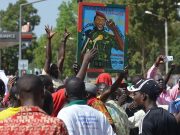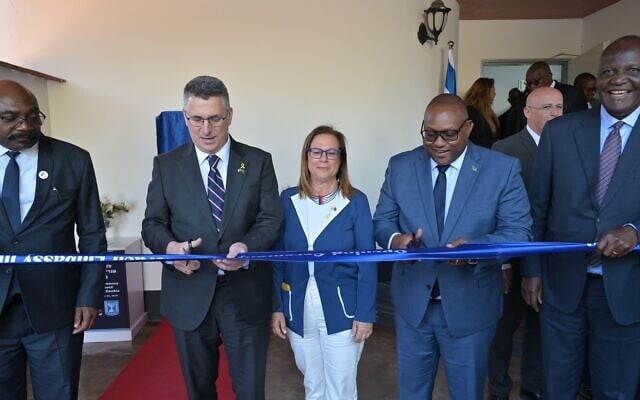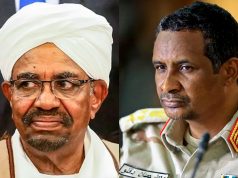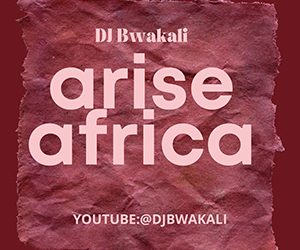Israel’s reopening of its embassy in Lusaka after more than half a century is more than a diplomatic ribbon-cutting. It is a signal that Jerusalem is steadily rebuilding a footprint across Africa that has risen and fallen since the 1960s. On August 20, 2025, Israel formally re-established its mission in Zambia, with both sides framing the move as a new platform for cooperation in health, climate, and agriculture. But the deeper story here is about how Africa, as a continent, chooses to relate with Israel at a time when the Middle East is bleeding.
Today Israel operates twelve embassies in Africa in Angola, Cameroon, Egypt, Ethiopia, Ghana, Côte d’Ivoire, Kenya, Nigeria, Rwanda, Senegal, South Africa, and Zambia, alongside a liaison office in Morocco. Several of these embassies also carry regional coverage. Nairobi covers Uganda, Malawi, Tanzania, and Seychelles. Luanda handles DRC, Mozambique, and São Tomé. Accra covers Liberia and Sierra Leone. This web of engagement shows how Israel remains active even where it lacks brick-and-mortar missions, and the reopening in Zambia signals a renewed push after years of retreat.
Where ties are strong, Israel has invested heavily in political goodwill, security links, and development partnerships. In East Africa, Kenya, Ethiopia, and Rwanda stand as key allies. In West Africa, Ghana, Nigeria, and Côte d’Ivoire remain dependable partners. Morocco is a special case, as Israel’s recognition of Moroccan sovereignty over Western Sahara has deepened that relationship. Egypt remains the anchor of peace, with a “cold but functional” relationship since 1979 that still persists. Zambia, with its new embassy, now enters this circle too. Even Chad, a Muslim-majority state, restored ties in 2019 and opened an embassy in Israel by 2023, though that too has been recalibrated amid the Gaza conflict.
But the map is far from uniform. Relations are either thin, suspended, or non-existent with Algeria, Comoros, Djibouti, Libya, Somalia, Tunisia, Mali, Niger, and Mauritania. South Africa is openly hostile. In 2023, Parliament voted to suspend ties, and Pretoria led the genocide case against Israel at the International Court of Justice. Sudan, which announced normalization in 2023, has seen its process derailed by civil war. At the continental level, Israel’s observer status at the African Union was granted in 2021 but suspended in 2023. Israeli envoys have been barred from AU events, underscoring how fraught the optics remain.
Even as these dynamics play out, the world watches the human toll of a war that must never become routine. The October 7 massacre by Hamas, in which about 1,200 Israelis were killed in their homes and at a music festival, was a catastrophe that shattered lives and innocence. Israel’s military response has been devastating. More than 63,000 people in Gaza, most of them civilians and more than half women and children, have been killed. Injuries exceed 150,000. Independent estimates suggest the death toll may be closer to 84,000 between October 2023 and early 2025, half of them women of working age, children, or the elderly. Ratios point to as many as four civilians killed for every combatant. This is not warfare as usual. It is a humanitarian catastrophe. Nothing justifies the killing of civilians, no matter who they are. The cycle of slaughter that began with October 7 and continues in Gaza must end.
The count of embassies matters because it signals intent. In the 1960s, Israel had dozens of missions across Africa. By 2024, that number had shrunk to just over a dozen. The Zambia reopening nudges that tally upward, suggesting Jerusalem is once again serious about rebuilding its continental presence. How, then, should Africa respond?
Africa must set absolute red lines. Any idea of resettling Palestinians on African soil must be rejected, as such demographic engineering would drag our continent into a conflict not of its own making. Africa must harness its collective leverage through the African Union. Whether Israel regains observer status or not, the AU must insist on respect for international law, humanitarian access in Gaza, and a real pathway toward a two-state solution. Africa’s collective voice has already shaped summit optics, and now it can shape outcomes.
When Africa engages with Israel, it must be rooted in interest-based cooperation with strong safeguards. Israeli expertise in water technology, drought-resistant agriculture, health, and innovation can serve the continent, but only with binding clauses on technology transfer, data protection, and human-rights oversight. Reciprocity is essential. Deeper ties with Israel should not mean abandoning Palestinian or Arab partners. Africa gains credibility as a bridge, not a pawn. Benefits must stay local. Every partnership must generate local jobs, knowledge partnerships with African universities, and avoid turning our markets into testing grounds.
Africa should also reduce its emphasis on security cooperation where possible. While security has its place, the continent’s true strength lies in diplomacy, moral clarity, and development. Emphasizing peace-building, mediation, and youth-to-youth initiatives will help defuse polarization rather than fuel it.
Zambia’s embassy reopening is one dot in an expansive African canvas. Today, Israel has twelve embassies and one liaison office across the continent, strong ties in various regions, no ties with nine states, and adversarial relations with South Africa. The task for Africa is clear: engage with Israel where it builds African power, reject what undermines African dignity, and speak unwaveringly for international law, justice, and peace. The killing of civilians, whether in Israel or Gaza, can never be justified. Africa must stand as a continent of sovereignty, morality, and hope, even as it nudges the Middle East toward sanity and reconciliation.

























